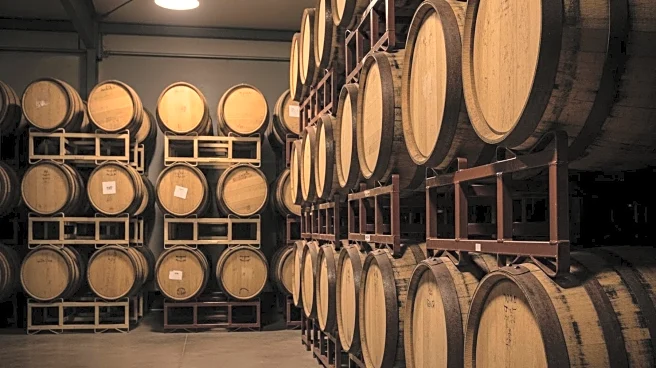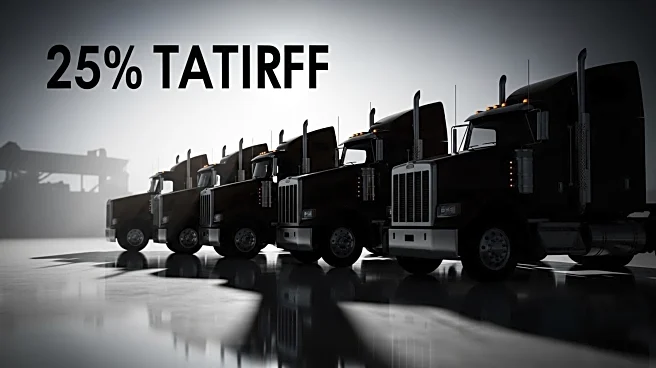What's Happening?
Mexico's recent judicial reform, initiated by former President Andrés Manuel López Obrador and implemented by President Claudia Sheinbaum, has led to significant changes in the country's judiciary. The reform requires judges to run for election, reducing qualifications and resulting in a sweep by the leftist party Morena. Concerns have arisen over cartel influence in the judiciary, with several judges reportedly having ties to criminal syndicates. This has caused financial instability and threatens Mexico's adherence to international arbitration agreements, crucial for foreign investment.
Why It's Important?
The judicial reform poses a risk to U.S. investors and trade relations with Mexico, a key trading partner. The potential for cartel influence in the judiciary undermines legal protections for U.S. companies, jeopardizing billions in investments. The erosion of arbitration agreements could lead to increased legal uncertainty and discourage future investments. As Mexico is central to U.S. trade, maintaining legal integrity is vital for economic stability and security.
What's Next?
The U.S. may need to reassess its trade agreements with Mexico, considering the impact of judicial reform on arbitration protections. Companies may face challenges in enforcing arbitration awards, leading to potential disputes and forum shopping. The U.S. Department of Commerce might evaluate the situation to safeguard American interests. Additionally, the reform could prompt increased scrutiny from U.S. enforcement authorities regarding cartel-linked corruption.
Beyond the Headlines
The reform highlights broader issues of lawlessness and political influence in Mexico, affecting U.S. trade and security. The potential manipulation of the judiciary by cartels could lead to systemic risks for investors, necessitating vigilance and strategic responses from U.S. businesses. The situation underscores the importance of upholding international legal norms and protecting the rule of law in global trade relations.











